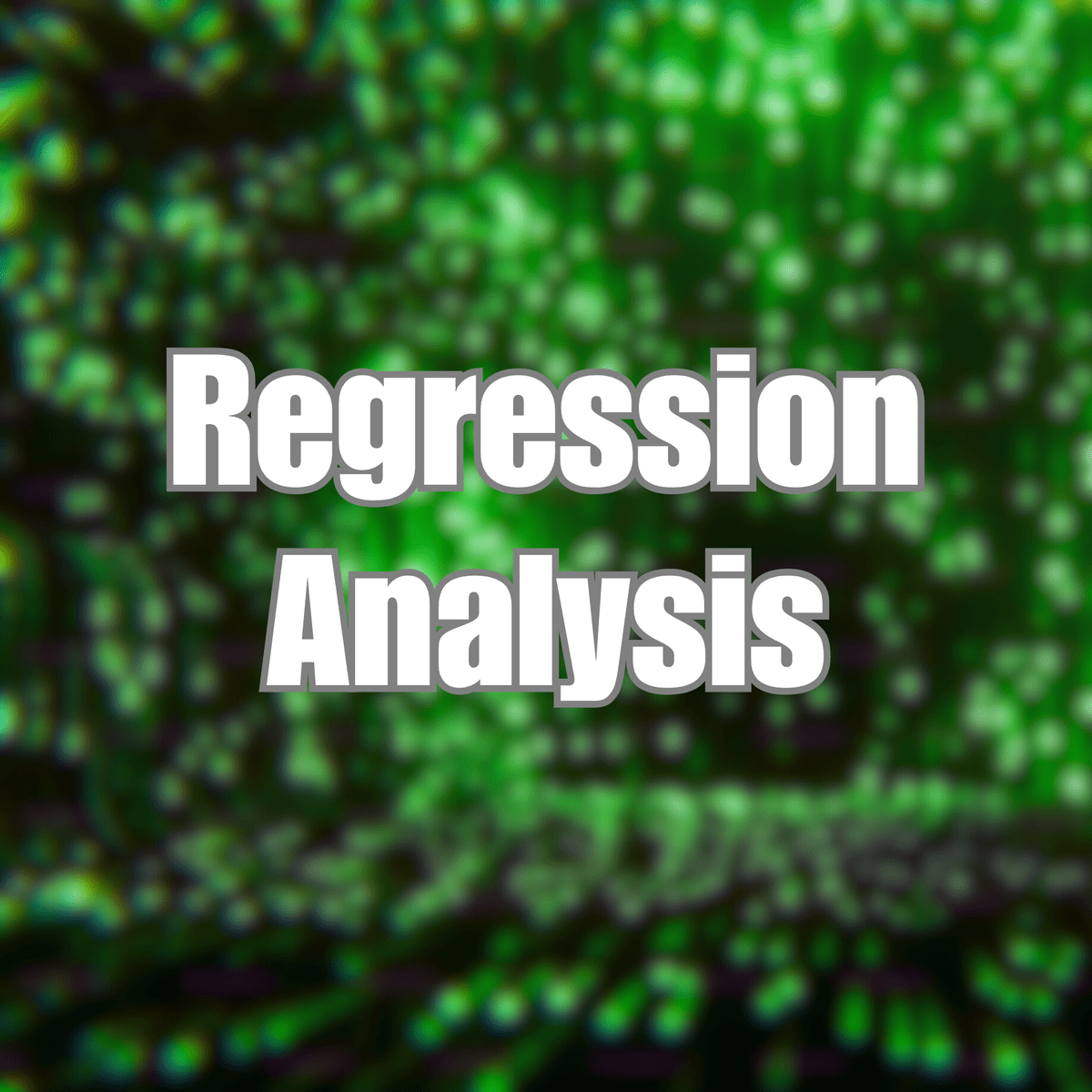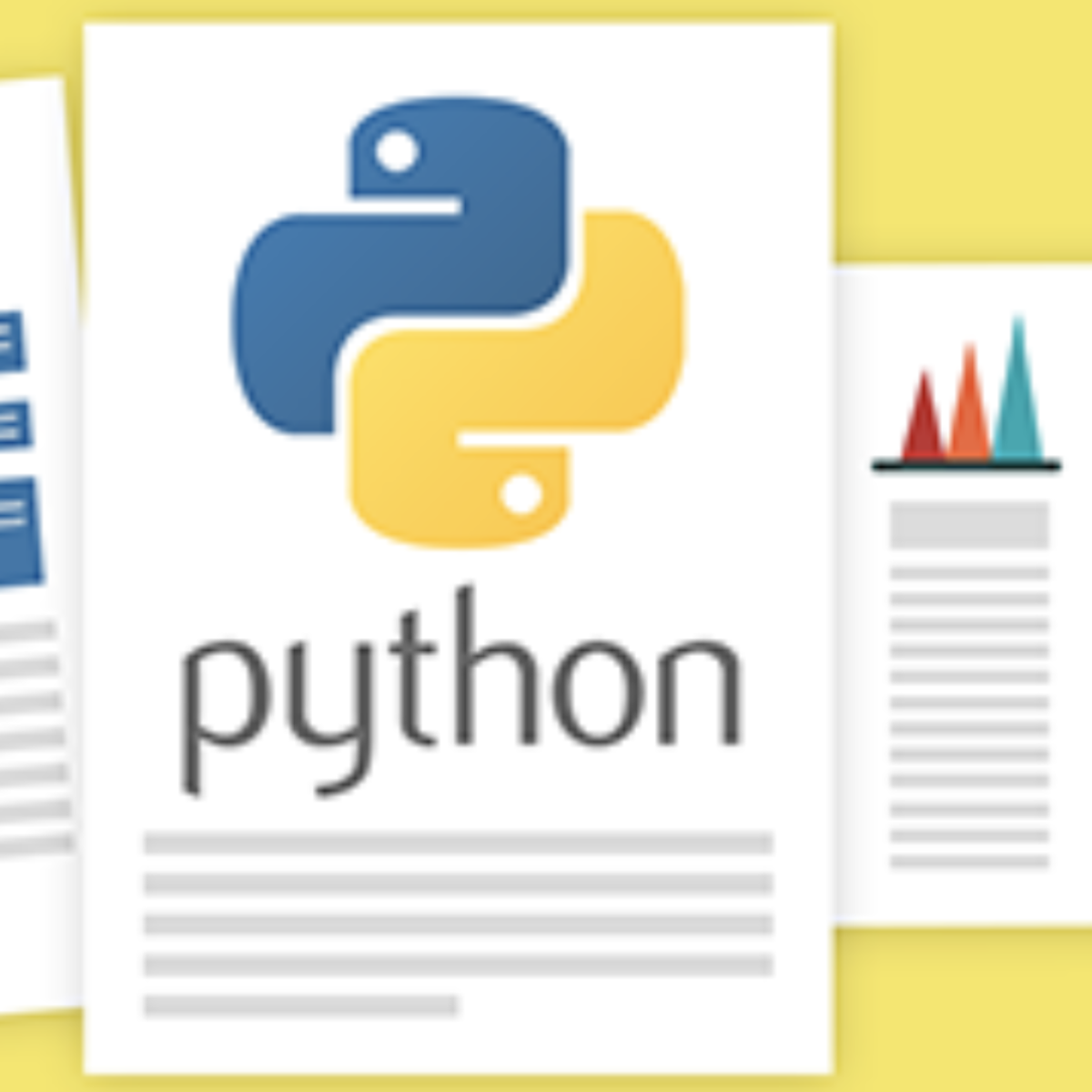Quantitative Analyst
Quantitative Analyst
A Quantitative Analyst, often called a "quant," is a professional who applies mathematical and statistical methods to financial and risk management problems. They develop and implement complex models used by financial firms to make decisions about investments, pricing, and risk. Think of them as the scientists of the financial world, using data and advanced mathematics to understand and predict market behavior.
Working as a quant can be incredibly stimulating. You'll tackle intricate problems requiring deep analytical thinking, often at the cutting edge of finance and technology. The role offers the chance to see your mathematical models directly impact significant financial decisions and market movements, which can be both challenging and rewarding. It's a field where intellectual curiosity meets real-world application.
Quantitative analysts use their skills to design trading algorithms, price complex financial instruments like derivatives, manage portfolio risks, and develop predictive models for market trends. Their work is essential in environments where data-driven strategies provide a competitive edge.
Introduction to Quantitative Analyst Roles
Defining the Quantitative Analyst
At its core, a Quantitative Analyst leverages quantitative methods to solve problems in finance. This involves using mathematical theories, statistical analysis, and computational techniques. Core responsibilities include developing mathematical models for pricing financial instruments, managing risk exposure, and creating automated trading strategies.
Quants analyze vast datasets to identify patterns, build predictive models, and test hypotheses about market dynamics. They often work closely with traders, portfolio managers, and risk managers, translating complex quantitative insights into actionable strategies. Strong analytical and problem-solving skills are paramount.
The role demands precision and a deep understanding of both the underlying mathematics and the financial context. A quant must be able to build robust models, validate their assumptions, and understand their limitations under various market conditions.
A Brief History and Evolution
The field of quantitative analysis emerged significantly in the 1970s and 1980s, fueled by advancements in financial theory, such as the Black-Scholes-Merton model for option pricing, and the increasing availability of computational power. Early quants often came from physics and mathematics backgrounds, bringing rigorous analytical approaches to Wall Street.
Initially focused on derivatives pricing and hedging, the scope of quantitative analysis expanded rapidly. The rise of algorithmic trading and high-frequency trading (HFT) in the late 1990s and 2000s created new demands for quants skilled in computer science and statistical arbitrage.
Today, the role continues to evolve with the integration of machine learning, artificial intelligence, and big data analytics into finance. Quants are now involved in areas ranging from credit risk modeling and portfolio optimization to regulatory compliance and fintech innovation.
Where Quants Work: Key Industries
Quantitative analysts are predominantly employed in the financial services industry. Investment banks, hedge funds, asset management firms, and proprietary trading firms rely heavily on quants for developing trading strategies, pricing complex securities, and managing risk.
Commercial banks also employ quants, particularly in areas like credit risk modeling, regulatory compliance (e.g., Basel accords), and loan portfolio analysis. Insurance companies utilize quantitative skills for actuarial analysis, risk modeling, and investment management.
The rise of Financial Technology (FinTech) has opened up new avenues. Startups and established tech companies involved in payments, lending, robo-advising, and blockchain technologies increasingly hire quants to build data-driven products and services.
Distinguishing Quants from Similar Roles
While there's overlap, a Quantitative Analyst differs from related roles like Data Scientists or Actuaries. Quants typically focus specifically on financial markets, applying advanced mathematical models (often stochastic calculus) to pricing, trading, and risk management.
Actuaries primarily work in the insurance industry, focusing on the financial impact of risk and uncertainty, often over longer time horizons, and rely heavily on statistical methods and probability theory related to mortality, accidents, and liability.
Data Scientists often work across various industries, applying statistical learning, machine learning, and data visualization techniques to extract insights from data. While many quants use data science techniques, their application domain is typically narrower and often requires deeper financial market knowledge and specific mathematical modeling expertise (e.g., stochastic calculus, derivatives pricing).
Core Skills for Quantitative Analysts
Mathematical Foundations
A strong mathematical background is non-negotiable for aspiring quants. Key areas include advanced calculus (multivariable, differential equations), linear algebra, probability theory, and statistics. Understanding these concepts is crucial for building and interpreting financial models.
Stochastic calculus, particularly concepts like Brownian motion, Ito's lemma, and stochastic differential equations, is fundamental for modeling asset prices and pricing derivatives. A solid grasp of statistical inference, regression analysis, and time series analysis is also essential for analyzing market data and validating models.
These foundational courses offer a starting point for building the necessary mathematical toolkit.
For those looking to deepen their understanding, these books provide comprehensive coverage of essential mathematical concepts.
Programming Proficiency
Quants must be proficient programmers to implement models, analyze data, and build trading systems. Python has become ubiquitous due to its extensive libraries for data analysis (Pandas, NumPy), machine learning (Scikit-learn, TensorFlow, PyTorch), and numerical computation (SciPy).
C++ remains crucial, especially in high-frequency trading (HFT) and performance-critical applications, due to its speed and efficiency. R is widely used for statistical analysis and visualization. Familiarity with database querying languages like SQL is also essential for data retrieval and management.
Tools like MATLAB are also common in certain quantitative finance areas, particularly for numerical computation and modeling. Version control systems like Git are standard for collaborative development.
These courses offer practical introductions to the programming languages most relevant to quantitative analysts.
Financial Modeling and Risk Management
A core competency for quants is the ability to build and implement financial models. This includes models for pricing derivatives (option pricing models), modeling asset price movements, predicting market trends, and optimizing investment portfolios.
Understanding and quantifying risk is equally important. Quants develop models to measure market risk, credit risk, liquidity risk, and operational risk. Techniques like Value at Risk (VaR), stress testing, and scenario analysis are standard tools.
Mastery involves not just building the models but also understanding their underlying assumptions, limitations, and calibration requirements. Applying these models requires a strong grasp of financial markets and instruments.
Communication and Soft Skills
While technical expertise is crucial, soft skills are often underestimated. Quants must be able to communicate complex mathematical ideas and model results clearly and concisely to non-technical audiences, such as traders, portfolio managers, clients, and senior management.
Effective communication ensures that the insights derived from quantitative analysis are understood and appropriately utilized in decision-making. Misinterpretations or misunderstandings can lead to significant financial losses or strategic errors.
Collaboration is also key, as quants often work in teams with individuals from diverse backgrounds (trading, IT, risk). Problem-solving abilities, attention to detail, intellectual curiosity, and the ability to work under pressure are other vital attributes for success in this demanding field.
Formal Education Pathways
Relevant Undergraduate Degrees
A strong quantitative undergraduate degree provides the essential foundation. Degrees in Mathematics, Physics, Statistics, or Engineering are common starting points, as they provide rigorous training in analytical thinking and problem-solving.
Computer Science degrees are also increasingly relevant, given the importance of programming and computational methods in modern quantitative finance. Some universities offer specialized undergraduate programs in financial mathematics or quantitative finance, but a strong grounding in core STEM subjects is often sufficient.
Regardless of the specific major, coursework should emphasize advanced calculus, linear algebra, probability, statistics, differential equations, and programming. Taking some courses in economics or finance can also be beneficial for understanding the application context.
Graduate Program Specializations
While some entry-level quant roles are accessible with a bachelor's degree, a graduate degree (Master's or PhD) is often preferred or required, especially for research-oriented or more complex modeling roles. Specialized Master's programs have become a primary pathway into the field.
Popular Master's degrees include Financial Engineering (MFE), Quantitative Finance (MQF), Computational Finance, Mathematical Finance, Statistics, or Data Science with a finance concentration. These programs provide specialized training in financial theory, stochastic calculus, numerical methods, programming, and statistical modeling tailored for financial applications.
These programs often incorporate practical coursework, industry projects, and career services specifically geared towards placing graduates in quant roles within the financial industry. They offer a structured curriculum to bridge the gap between foundational academic knowledge and industry requirements.
The Role of a PhD
A PhD in a highly quantitative field (e.g., Mathematics, Physics, Statistics, Computer Science, Electrical Engineering) can be advantageous, particularly for roles involving cutting-edge research, complex model development, or specialized areas like algorithmic trading strategy research.
PhDs demonstrate deep expertise in a specific domain, advanced research capabilities, and the ability to tackle highly complex, unstructured problems. Many top-tier hedge funds and proprietary trading firms actively recruit PhDs for their research teams.
However, a PhD is not strictly necessary for all quant roles. Many successful quants hold Master's degrees. The decision depends on career aspirations, with PhDs often leading to more research-focused paths initially, while Master's graduates might move into roles involving model implementation, validation, or quant development.
Relevant Certifications
While formal degrees are the primary educational requirement, certain professional certifications can enhance a quant's profile, although they are generally less critical than advanced degrees. The Chartered Financial Analyst (CFA) designation provides a broad grounding in investment management, ethics, and financial analysis.
The Financial Risk Manager (FRM) certification, offered by the Global Association of Risk Professionals (GARP), focuses specifically on risk management techniques and practices, which is highly relevant for risk-focused quant roles. Other certifications exist for specific software or platforms, but the CFA and FRM are the most widely recognized in finance.
These certifications often require significant self-study and demonstrate a commitment to professional development and specialized knowledge within the finance industry. They can be particularly valuable for those transitioning from other fields or seeking to deepen their expertise in specific areas.
Online Learning and Self-Directed Study
Can You Transition via Online Learning?
Transitioning into a quantitative analyst role solely through online education presents challenges but is becoming increasingly feasible, especially for supplementary learning or bridging specific skill gaps. The core mathematical and programming foundations are rigorous and often best acquired through structured academic programs.
However, online courses are invaluable for learning specific programming languages (Python, R, C++), software tools (SQL, MATLAB), machine learning techniques, and specialized financial topics. They offer flexibility and accessibility, allowing learners to study at their own pace.
For career changers, online learning can supplement existing quantitative degrees or experience. Building a strong portfolio of projects is crucial to demonstrate practical skills acquired through self-study to potential employers. Networking and potentially pursuing a formal graduate degree later may still be necessary for accessing top-tier roles.
Platforms like OpenCourser aggregate thousands of courses, making it easier to find resources covering specific quant skills. Utilize features like saving courses to a list via "Save to List" to plan your learning path.
Core Topics for Self-Study
Individuals pursuing self-study should focus on mastering the fundamental pillars: mathematics, programming, and finance. Key areas include calculus, linear algebra, probability, statistics, Python/C++/R programming, data structures, algorithms, financial markets, derivatives pricing, and risk management.
Specific quant finance topics like stochastic calculus (Ito calculus), time series analysis, machine learning applications in finance (regression, classification, clustering), and algorithmic trading strategies are essential.
It's crucial to go beyond theory and apply concepts through coding exercises and projects using real or simulated financial data.
These books offer deep dives into essential statistical learning and machine learning techniques often used by quants.
Building a Portfolio with Projects
A portfolio of independent projects is critical for demonstrating practical skills, especially for those relying heavily on self-study or online courses. Projects showcase your ability to apply theoretical knowledge to real-world (or simulated) problems.
Examples include backtesting a trading strategy using historical data, implementing an option pricing model, building a risk analysis tool, analyzing market correlations, or applying machine learning to predict stock movements. Document your projects thoroughly, explaining the methodology, code, results, and limitations.
Contributing to relevant open-source projects (e.g., financial libraries in Python or R) or participating in data science competitions (like those on Kaggle) related to finance can also bolster your portfolio and demonstrate your capabilities to potential employers.
Bridging Online Learning and Employer Expectations
While online learning provides knowledge and skills, employers often look for credentials from reputable institutions and demonstrated practical application. Be prepared to clearly articulate how your online coursework and projects translate into the skills required for a quant role.
Networking is vital. Attend industry conferences (if possible), participate in online forums (QuantStackExchange, relevant subreddits), and connect with professionals in the field. Informational interviews can provide valuable insights and potential leads.
Consider supplementing online learning with specific, high-impact actions: passing levels of the CFA or FRM exams, contributing meaningfully to well-regarded open-source projects, or achieving strong results in relevant data science competitions.
Ultimately, convincing employers requires demonstrating a deep understanding of the fundamentals, practical coding ability, financial market awareness, and strong problem-solving skills, regardless of whether the learning occurred online or in a traditional academic setting. Our Learner's Guide offers tips on structuring self-learning and showcasing skills effectively.
Quantitative Analyst Tools and Technologies
Specialized Financial Software
Quants frequently use specialized financial data and analysis platforms. The Bloomberg Terminal is an industry standard, providing real-time market data, news, analytics, and communication tools. Refinitiv Eikon (formerly Reuters Eikon) is another major platform offering similar functionalities.
Familiarity with these terminals is often expected, as they are the primary sources for market data and analytics in many financial institutions. While access can be expensive, some universities provide it, and understanding their capabilities is beneficial.
Other specialized software may include risk management systems (e.g., Algorithmics, RiskMetrics), portfolio optimization tools, and specific trading platforms provided by brokers or exchanges.
Machine Learning Frameworks in Finance
Machine learning (ML) has become integral to quantitative finance. Quants utilize ML frameworks to build predictive models, detect anomalies, automate trading decisions, and analyze large, complex datasets (including alternative data).
Popular frameworks include TensorFlow and PyTorch for deep learning applications, such as natural language processing (NLP) for sentiment analysis or time series forecasting with recurrent neural networks (RNNs) and transformers.
Scikit-learn is widely used for traditional ML tasks like regression, classification, and clustering. Libraries like XGBoost and LightGBM are popular for gradient boosting models, often used in predictive modeling competitions and applications.
These books delve into the application of machine learning using popular Python libraries.
High-Frequency Trading and Cloud Infrastructure
High-frequency trading (HFT) requires specialized technology stacks focused on minimizing latency. Quants involved in HFT work with systems built for speed, often using C++, FPGAs (Field-Programmable Gate Arrays), and colocated servers near exchange matching engines.
Understanding network protocols, system optimization, and low-latency programming techniques is crucial in this domain. The infrastructure demands are significant, requiring specialized hardware and network engineering.
Cloud computing platforms like AWS, Google Cloud, and Azure are increasingly used for large-scale data analysis, model training, backtesting, and deploying certain types of quant applications. Familiarity with cloud services for data storage (S3, BigQuery), computation (EC2, Lambda), and machine learning (SageMaker, Vertex AI) is becoming more important.
Emerging Technologies: Quantum and Blockchain
While still nascent, emerging technologies hold potential future implications for quantitative analysis. Quantum computing promises to solve certain optimization and simulation problems intractable for classical computers, potentially revolutionizing areas like portfolio optimization and complex derivative pricing.
Blockchain technology and decentralized finance (DeFi) are creating new asset classes (cryptocurrencies) and financial infrastructure. Quants are exploring applications in areas like smart contract valuation, decentralized exchanges, and modeling crypto-asset volatility.
While widespread adoption may take time, staying aware of these technological frontiers can be advantageous for forward-looking quants. Research and experimentation in these areas are ongoing within academia and specialized financial firms.
Ethical Considerations in Quantitative Analysis
Algorithmic Bias
Quantitative models, particularly those using machine learning, can inherit and amplify biases present in historical data. This can lead to unfair or discriminatory outcomes in areas like credit scoring, loan approvals, hiring algorithms, and even trading systems if certain groups are systematically disadvantaged.
Quants have an ethical responsibility to be aware of potential biases, test their models for fairness, and explore techniques for bias mitigation. Transparency and interpretability of models are crucial for identifying and addressing these issues.
The goal is to build models that are not only accurate but also equitable and aligned with ethical principles.
Systemic Risk and Model Limitations
The widespread use of similar quantitative models across many financial institutions can potentially create or exacerbate systemic risk. If many automated systems react similarly to market events (e.g., triggering sell-offs), it can lead to flash crashes or liquidity crises.
Quants must understand the limitations of their models, particularly their performance under extreme market conditions or scenarios not captured in historical data. Over-reliance on models without understanding their assumptions and potential failure points can be dangerous.
Ethical considerations involve robust model validation, stress testing, understanding correlation risks, and ensuring that human oversight remains part of the decision-making process, especially for critical systems.
Regulatory Compliance
The financial industry is heavily regulated, and quantitative models are often subject to regulatory scrutiny. Regulations like MiFID II (Markets in Financial Instruments Directive II) in Europe and various aspects of the Basel Accords (Basel III, Basel IV) impose requirements on model validation, risk management practices, algorithmic trading, and reporting.
Quants, particularly those in risk management and model validation roles, must understand and ensure compliance with relevant regulations. This involves rigorous documentation, independent validation processes, and transparency regarding model methodologies and assumptions.
Ethical practice includes adhering to both the letter and the spirit of these regulations, which are designed to promote financial stability and protect consumers and investors.
Environmental and Social Impact
The environmental impact of certain quantitative activities, particularly high-frequency trading (HFT), is gaining attention. HFT data centers consume significant amounts of energy, contributing to carbon emissions. Ethical discussions may involve considering the sustainability of trading infrastructure.
Furthermore, the broader social impact of quantitative finance is a subject of debate. While quantitative methods can increase market efficiency and provide valuable risk management tools, critics argue they can also contribute to market volatility, inequality, or short-termism. Quants may grapple with the societal implications of their work.
The rise of ESG (Environmental, Social, and Governance) investing also presents ethical considerations for quants, requiring them to potentially incorporate non-financial factors into their models and investment strategies.
Career Progression for Quantitative Analysts
Entry-Level Roles
Graduates typically enter the field in roles like Junior Quant Analyst, Quantitative Researcher, Risk Analyst, or Quant Developer. Initial responsibilities often involve supporting senior quants, data analysis, model implementation, testing, and basic model development.
These roles provide foundational experience in specific areas (e.g., a particular asset class, risk type, or modeling technique) and exposure to the tools and practices of the industry. Strong performance involves mastering the technical skills and demonstrating analytical aptitude.
Entry-level positions often exist within larger banks, asset managers, or specialized quant funds. The focus is on learning, contributing to team projects, and building a solid technical base.
Mid-Career Paths
With experience, quants can specialize further or take on more responsibility. Common mid-career paths include becoming a Senior Quant Analyst/Researcher, leading specific modeling projects, or developing complex trading strategies.
Some quants move into Portfolio Management roles, directly managing investment portfolios based on quantitative strategies. Others specialize as Quant Developers, focusing on building and optimizing the software infrastructure for trading and analytics.
Mid-career progression often involves demonstrating not just technical skill but also the ability to generate novel ideas, manage projects, mentor junior analysts, and communicate effectively with stakeholders. Compensation typically increases significantly at this stage.
Executive and Leadership Positions
Experienced quants with strong leadership and strategic capabilities can advance to executive roles. Positions like Head of Quantitative Research, Chief Risk Officer (CRO), or Chief Investment Officer (CIO) often require a deep understanding of quantitative methods combined with business acumen.
These roles involve setting strategic direction for quantitative teams, managing large groups of analysts and developers, overseeing risk frameworks, and making high-level decisions about investment strategies or firm-wide risk exposure.
Moving into leadership requires a shift from purely technical contributions to managing people, setting vision, and navigating the broader business context. Strong communication, leadership, and strategic thinking skills become paramount.
Transition Opportunities
The skills developed as a quant are transferable. Experienced quants may transition into related fields or pursue different career paths. Opportunities exist in FinTech entrepreneurship, leveraging quantitative and technological expertise to build new financial products or services.
Some quants return to academia as professors or researchers in finance, mathematics, or computer science departments. Others might move into data science roles in other industries (tech, healthcare, e-commerce) where advanced analytical and modeling skills are highly valued.
The rigorous training and problem-solving abilities honed as a quant provide a strong foundation for various analytical and leadership roles across different sectors.
Global Trends Impacting Quantitative Analysts
AI and Machine Learning Disruption
Artificial Intelligence (AI) and Machine Learning (ML) are profoundly impacting quantitative finance. These technologies enable the analysis of larger and more complex datasets (including alternative data like satellite imagery or social media sentiment) and the development of more sophisticated predictive models and automated trading strategies.
Quants must increasingly incorporate ML techniques into their toolkit, moving beyond traditional statistical models. This trend requires continuous learning and adaptation, blending classical quantitative finance methods with newer data science approaches. According to a World Economic Forum report, skills related to AI and Big Data are among the fastest growing in demand across industries, including finance.
These books provide insights into the theoretical underpinnings and practical applications of AI and ML.
Decentralized Finance (DeFi) and Cryptocurrencies
The emergence of cryptocurrencies and Decentralized Finance (DeFi) presents both opportunities and challenges for quants. New digital asset classes require novel modeling techniques for pricing, volatility analysis, and risk management.
DeFi platforms introduce new financial structures and protocols (e.g., automated market makers, yield farming) that require quantitative analysis to understand their mechanics and risks. Quants are exploring how to apply or adapt existing financial models to this rapidly evolving landscape.
While the regulatory environment is still developing, the growth of digital assets is creating demand for quants who can navigate this new frontier, develop trading strategies, and assess the unique risks involved.
ESG Investing's Influence
Environmental, Social, and Governance (ESG) factors are increasingly influencing investment decisions. Investors and asset managers are seeking ways to integrate ESG considerations into portfolio construction and risk management.
This trend requires quants to develop new models and methodologies that incorporate non-traditional, often qualitative ESG data. Challenges include data scarcity, lack of standardization, and quantifying the financial impact of ESG factors.
Quants are working on developing ESG scoring models, integrating ESG criteria into optimization algorithms, and assessing the relationship between ESG performance and financial returns. This intersection of quantitative analysis and sustainability is a growing area of focus.
Geopolitical Risks and Macroeconomic Modeling
Increased geopolitical uncertainty, supply chain disruptions, and volatile macroeconomic conditions pose significant challenges for traditional quantitative models, which often rely on historical data and stable market relationships.
Quants need to enhance their models to better account for tail risks, regime shifts, and the impact of macroeconomic factors and geopolitical events. This may involve incorporating more sophisticated scenario analysis, using alternative data sources, or developing models that are more robust to structural breaks.
There is a growing need for quantitative approaches that can dynamically adapt to changing global landscapes and provide insights into the complex interplay between financial markets, economic policy, and geopolitical developments.
Frequently Asked Questions
What distinguishes a Quant from a Data Scientist in finance?
While both roles involve data analysis and modeling, Quants in finance typically focus more on applying advanced mathematical models (often from physics or stochastic calculus) specifically to financial market problems like derivatives pricing, algorithmic trading, and complex risk modeling. They usually require deeper domain knowledge of financial instruments and markets.
Data Scientists in finance might work on broader problems, often leveraging statistical learning and machine learning techniques for tasks like fraud detection, customer analytics, credit scoring, or operational efficiency. The required mathematical depth might differ, with quants often needing more theoretical math (stochastic processes) and data scientists focusing more on statistical learning theory and implementation.
Is a PhD mandatory for senior Quantitative Analyst roles?
A PhD is not strictly mandatory for all senior quant roles, but it is often highly advantageous, especially for positions involving original research, development of novel trading strategies, or leading research teams in top-tier firms (like hedge funds or prop trading shops). Many successful senior quants hold Master's degrees, particularly in roles focused on model implementation, validation, risk management, or quant development.
For roles requiring deep theoretical innovation or expertise in highly specialized areas, a PhD in a field like Mathematics, Physics, Statistics, or Computer Science provides a distinct edge. However, practical experience, demonstrated impact, and strong leadership skills are also crucial for advancement to senior levels, regardless of the specific degree.
The necessity of a PhD often depends on the specific firm culture and the nature of the role. Some firms heavily favor PhDs for research roles, while others value a combination of advanced degrees (Master's included) and practical experience.
How volatile is quant employment during market downturns?
Quant employment can be cyclical and sensitive to market conditions, but the impact varies. During severe downturns or financial crises, firms might reduce headcount across the board, including in quantitative roles, especially those tied directly to trading revenue or discretionary projects.
However, demand for quants in areas like risk management, model validation, and regulatory compliance might actually increase during or after crises as firms and regulators focus more on managing risk and ensuring model robustness. Quants with versatile skills (strong programming, data analysis, adaptable modeling techniques) may fare better.
Overall, while not immune to market volatility, the fundamental need for quantitative skills in finance remains strong. Roles focused on essential functions like risk management tend to be more stable than those purely focused on generating trading profits, which can be more volatile.
Can one transition from software engineering to quantitative analysis?
Yes, transitioning from software engineering to quantitative analysis is a common pathway, particularly into roles like Quant Developer or positions involving algorithmic trading systems, data infrastructure, or ML model implementation.
Software engineers bring strong programming skills, system design expertise, and experience with software development best practices. To transition successfully, they typically need to supplement their background with stronger mathematical foundations (calculus, linear algebra, probability, statistics) and acquire knowledge of financial markets, instruments, and quantitative modeling techniques.
This often involves targeted self-study, online courses focused on finance and quantitative methods, or pursuing a relevant graduate degree (like an MFE or MQF). Demonstrating financial knowledge and quantitative aptitude through projects or certifications is crucial for making the switch.
What are typical compensation ranges across experience levels?
Compensation for quantitative analysts is generally very competitive but varies significantly based on location, firm type (hedge fund vs. bank), role focus (research vs. development vs. risk), educational background (PhD vs. Master's), and individual performance.
Entry-level roles (with a Master's or PhD) might see total compensation (base salary + bonus) ranging roughly from $150,000 to $300,000+ USD per year in major financial hubs like New York or London. Bonuses can be a substantial portion, especially at hedge funds and proprietary trading firms.
Mid-career and senior quants can earn significantly more, with total compensation potentially reaching $400,000 to well over $1,000,000+ annually for top performers in high-impact roles, particularly at successful hedge funds. Compensation structures often heavily incentivize performance through bonuses tied to trading profits or fund performance. Reliable, up-to-date figures can often be found in industry salary surveys from specialized recruitment firms like Robert Half or Options Group.
How does automation threaten traditional quant roles?
Automation and AI are transforming quantitative finance, automating certain tasks previously done by quants, such as data processing, basic model execution, and report generation. However, rather than eliminating roles entirely, automation is shifting the skillset required.
Routine tasks are becoming more automated, requiring quants to focus on higher-level activities: developing more complex models, interpreting results, integrating AI/ML techniques, managing complex systems, understanding model limitations, and communicating insights. Roles requiring creativity, deep theoretical understanding, strategic thinking, and complex problem-solving are less susceptible to automation.
The threat is less about job elimination and more about the need for continuous adaptation and upskilling. Quants who embrace new technologies like AI/ML and focus on value-added tasks are likely to remain in high demand. Those focusing solely on routine implementation of older techniques may face more pressure.
Embarking on a career as a Quantitative Analyst is a demanding yet potentially highly rewarding journey. It requires a unique blend of deep mathematical understanding, strong programming skills, and keen financial intuition. While the path is rigorous, the intellectual stimulation, the potential for significant impact, and the competitive compensation make it an attractive field for those with the right aptitude and dedication. Carefully consider the required skills and educational pathways, and leverage resources like online courses and projects to build your foundation. Whether you are just starting or considering a career change, thorough preparation and a realistic understanding of the challenges and opportunities are key to success.



















































